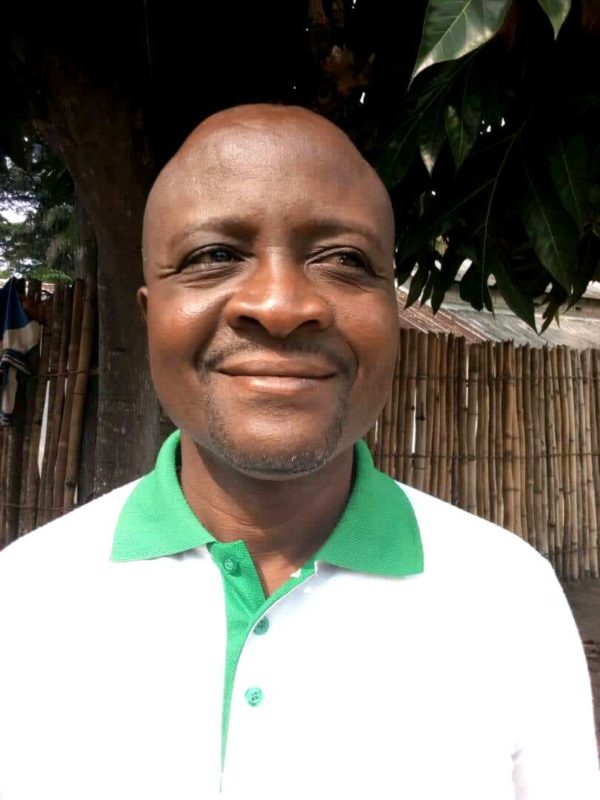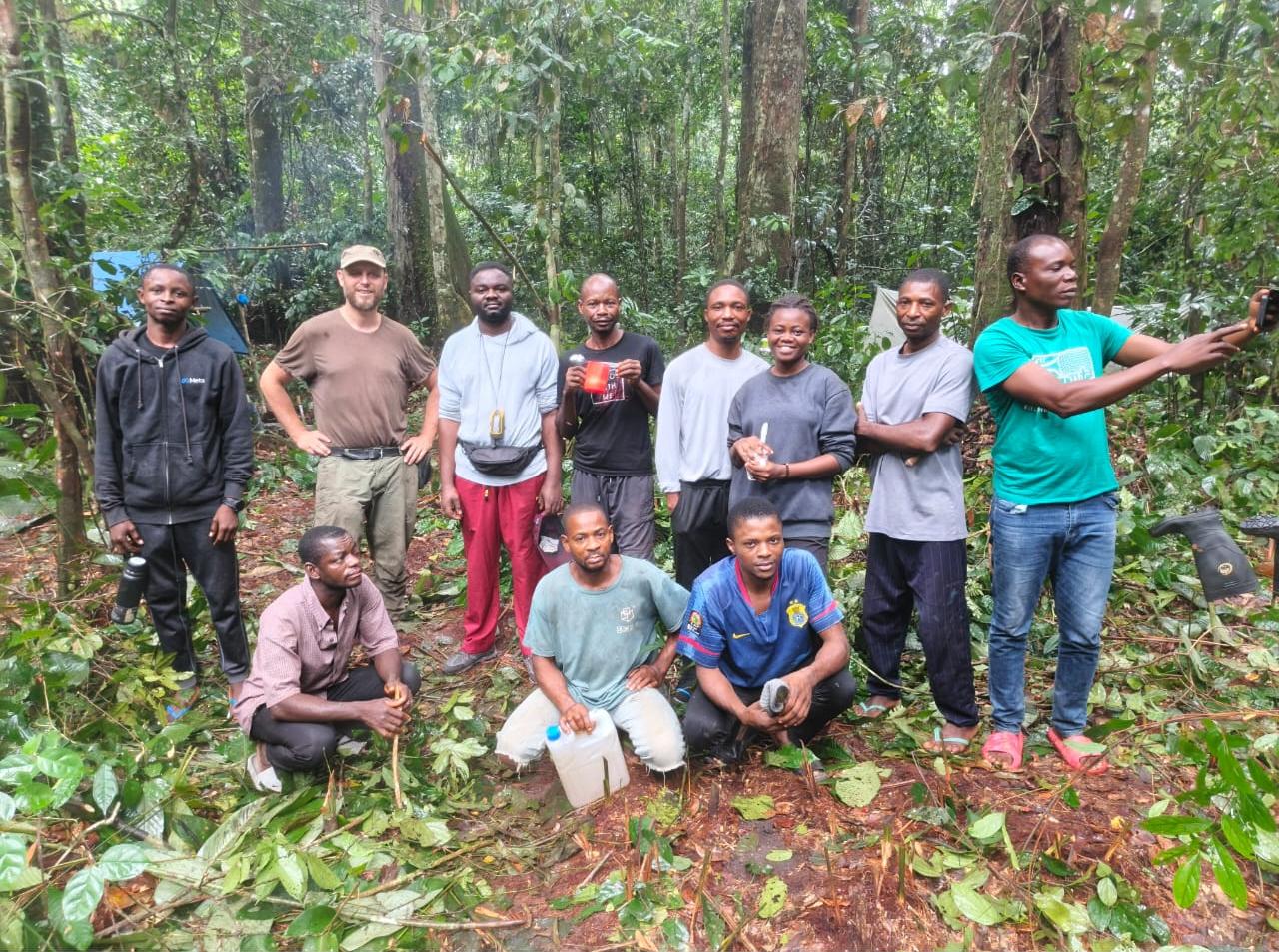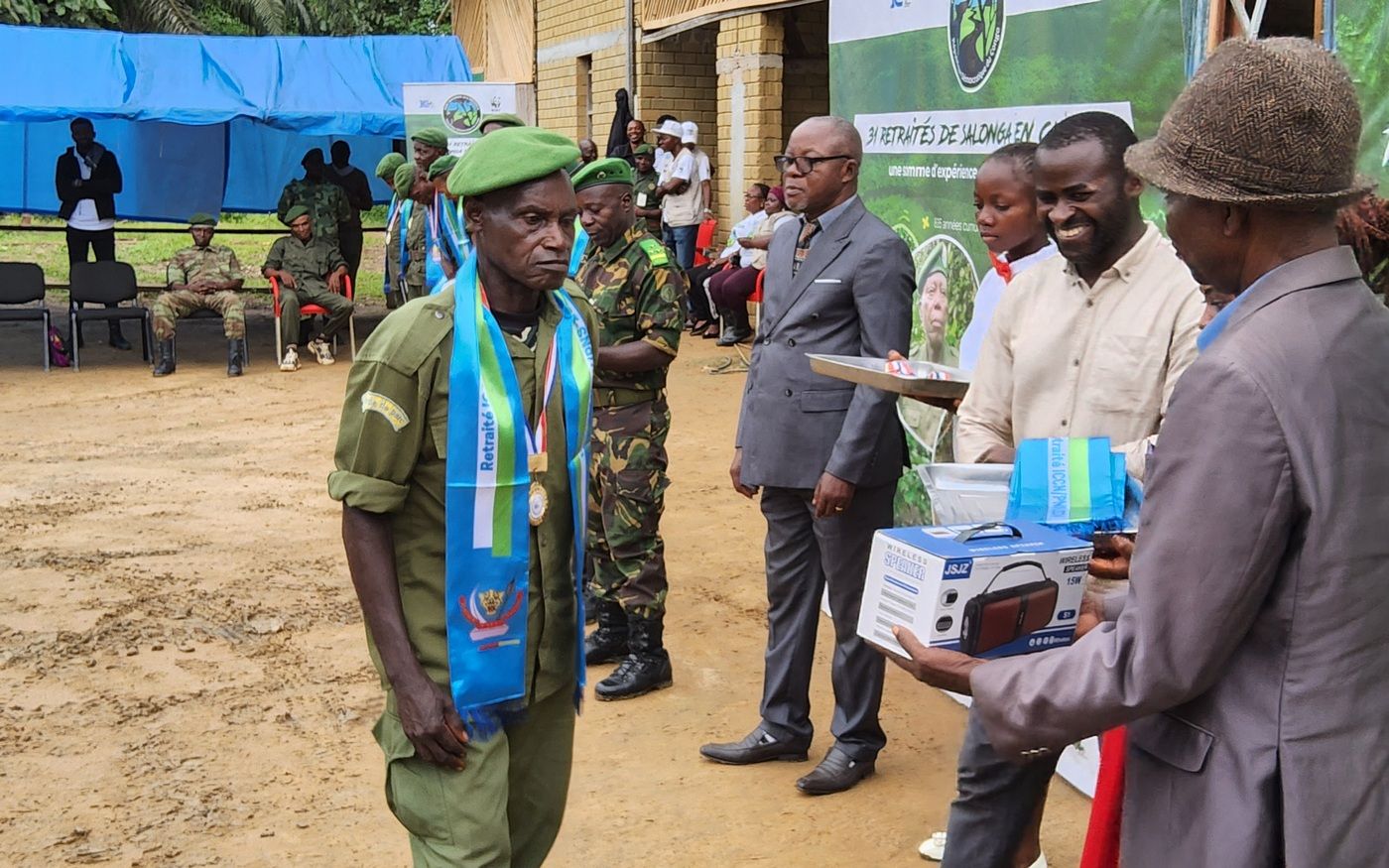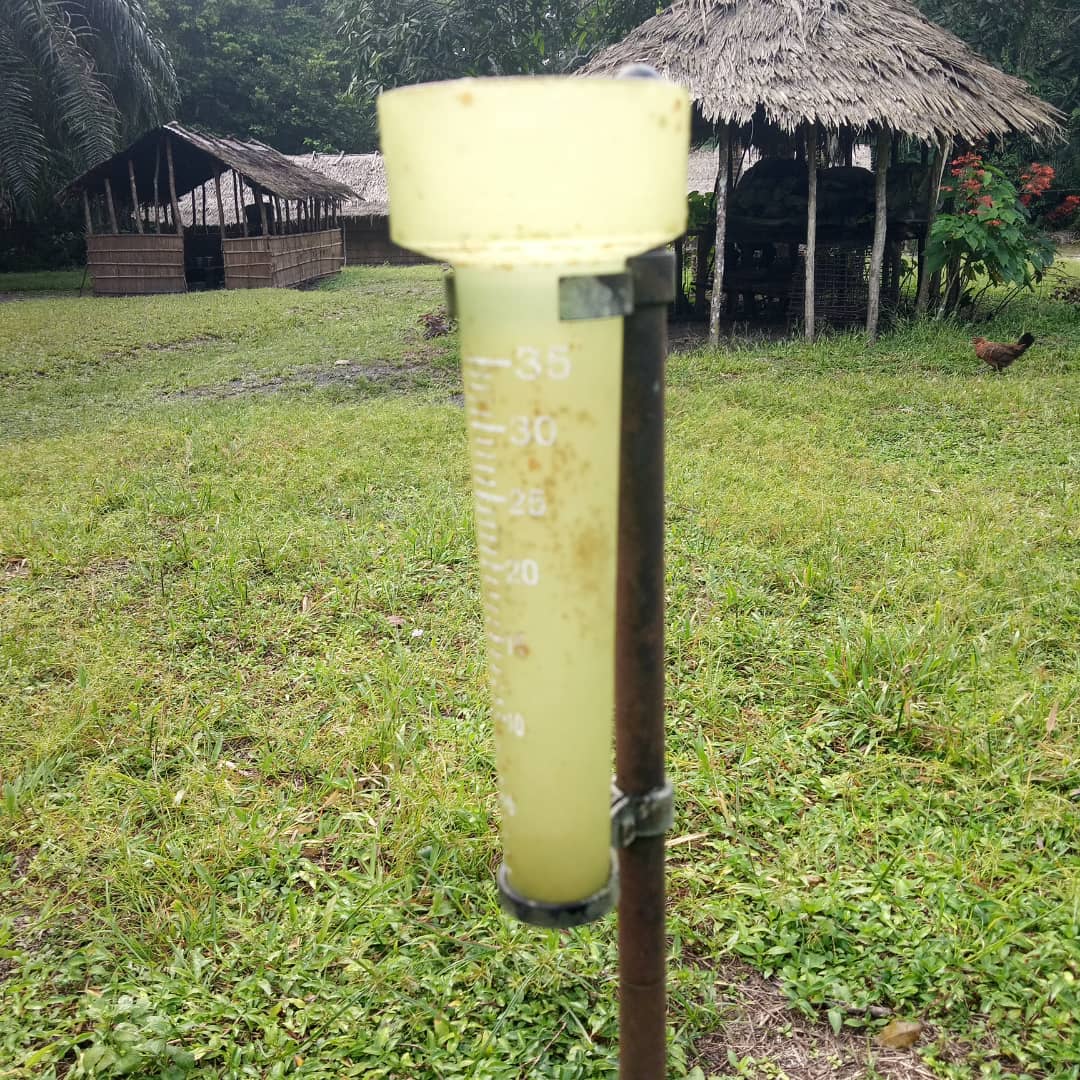Context and challenges
What is your role within the project and the Oxfam team in Dekese?
I work for Oxfam as Manager of the Salonga Rural Agricultural Conservation Project. I am responsible for a team of 18 people here in Dekese and in charge of planning financial resources and equipment. The Oxfam team is made up of a dozen community leaders, agricultural experts and support staff. On a daily basis, I ensure that Oxfam’s standards are met throughout the implementation of our activities.
What are currently the challenges for communities?
The communities around the park – in Oswhe, Dekese, Kole and Lomela – are very isolated compared to other parts of the country. Roads are almost non-existent and economic activities are limited. Therefore, communities are pushed into intense poaching for money. There is a strong demand from urban centres for bushmeat, including protected species and from the ivory trade. This is a real danger, first for these communities because it is illegal and second for the rest of the planet because it brings some species to the brink of extinction.
Indigenous communities in the region are marginalized for cultural and customary reasons. Generations can only access swampy land that is not suitable for agriculture. Arable land is not accessible to them, making them even more dependent on forest products.
I would also add that the communities are experiencing serious health problems, especially because of the river water they consume.

Thierry Tshitundu, Oxfam project manager of the PARCCS project (Agricultural and Rural Project for the Conservation of the Salonga Complex), based in Dekese.
OXFAM






